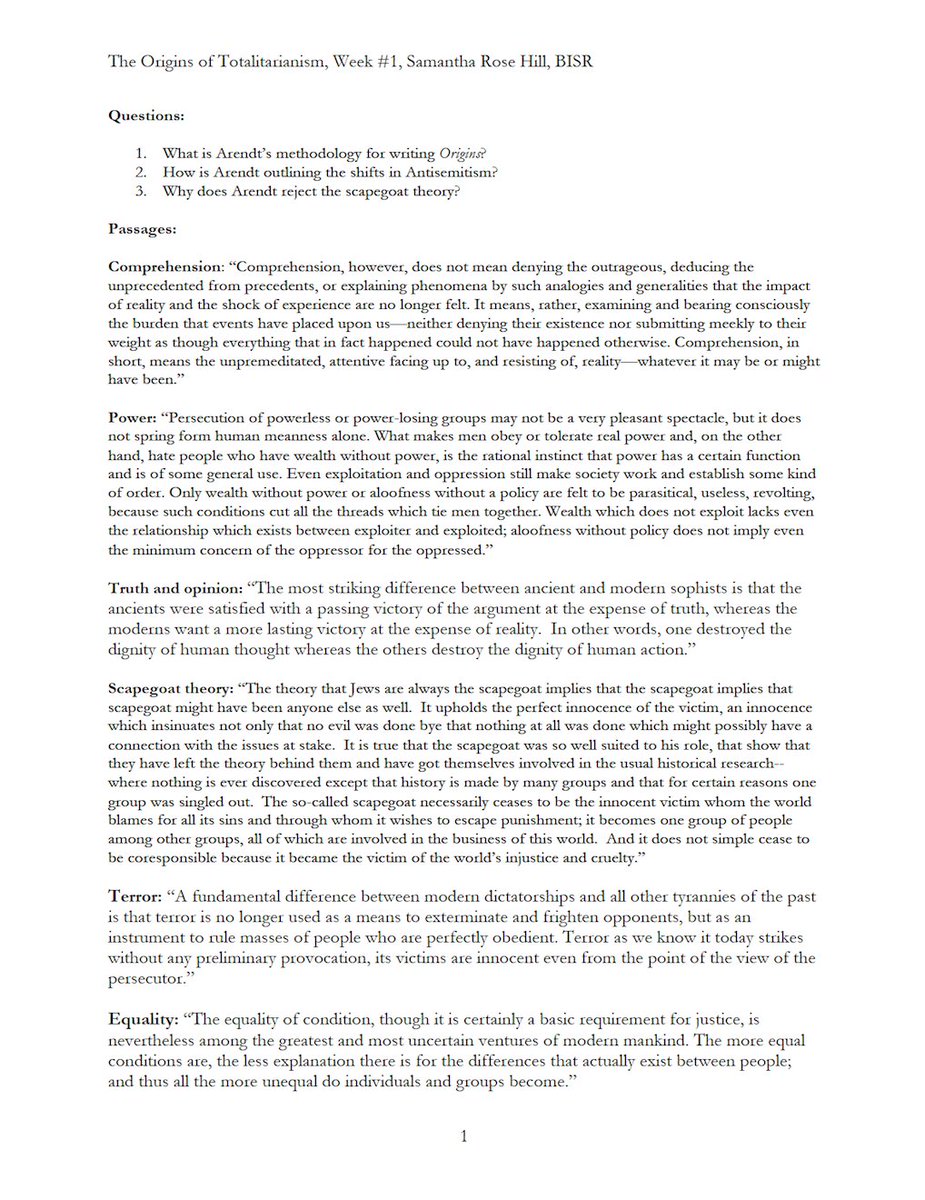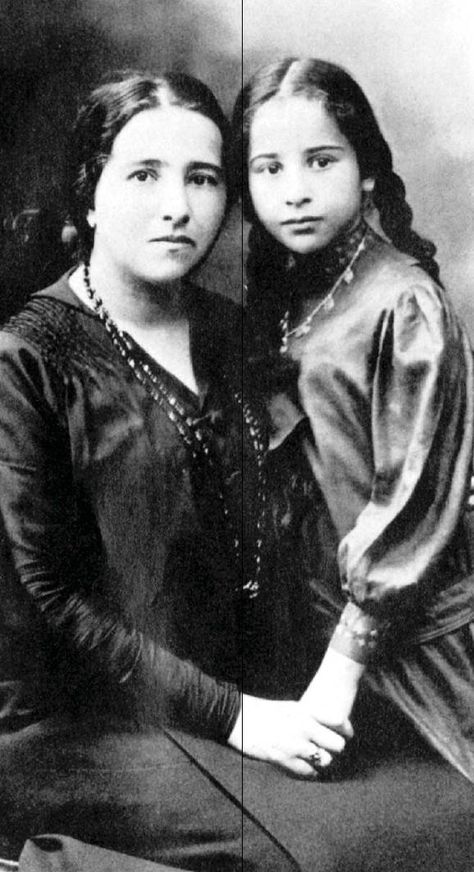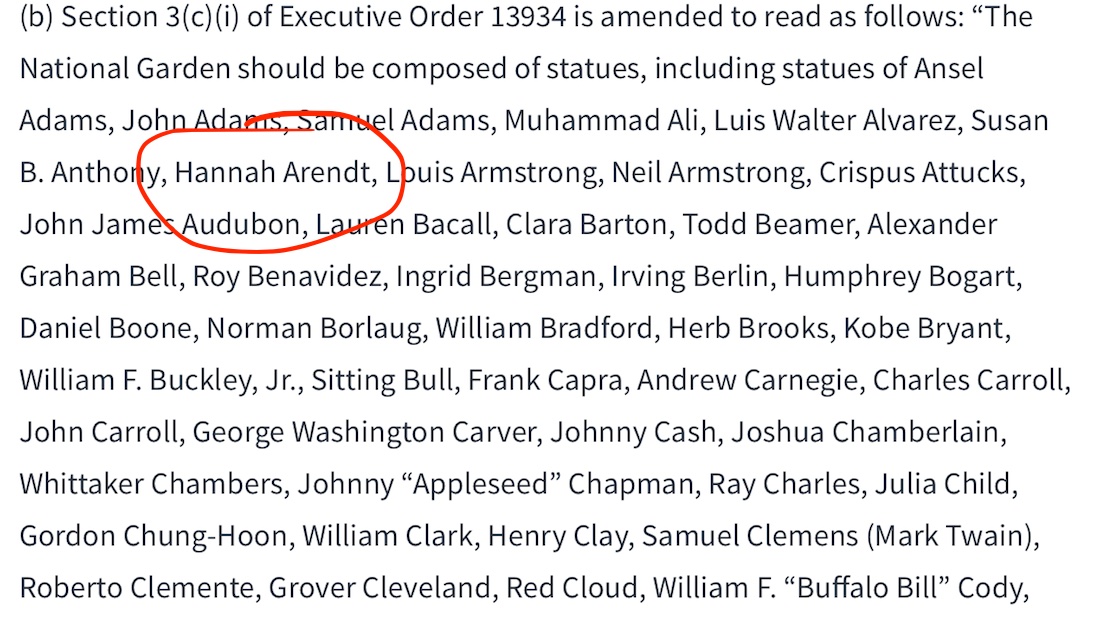Thread.
I finished teaching Hannah Arendt's Origins of Totalitarianism last night. I shared the handout for week three on imperialism. Here are the handouts for weeks one and two on antisemitism, racism and power politics. As we finished class I kept thinking about two things.



I finished teaching Hannah Arendt's Origins of Totalitarianism last night. I shared the handout for week three on imperialism. Here are the handouts for weeks one and two on antisemitism, racism and power politics. As we finished class I kept thinking about two things.



Citizenship will always be an instrument of imperialist nation-state politics, which create superfluous masses of people who are systematically stripped of their humanity. Arendt called this radical evil. She understood it as a three-step process.
1. “The first essential step on the road to total domination is to kill the juridical person in the man.” Which means, stripping a people of their political rights.
2. “The next decisive step in the preparation of living corpses is the murder of the moral person in man.” Which means, the invader will try to destroy human solidarity by making people complicit in their crimes.
3. The final step is the destruction of all spontaneity. “After the murder of the moral person and the annihilation of the juridical person, the destruction of individuality is almost always successful.”
Arendt adds, “The alternative is no longer between good and evil, but between murder and murder.”
The second thing I've been thinking about is how history keeps teaching us that when there is a choice between politics and humanity, humanity will lose.
The second thing I've been thinking about is how history keeps teaching us that when there is a choice between politics and humanity, humanity will lose.
Arendt ends Origins by saying: "Totalitarian solutions may well survive the fall of totalitarian regimes in the form of strong temptations which will come up whenever it seems impossible to alleviate political, social, or economic misery in a manner worthy of man."
It is human to want security, certain and predictability, but those are three things that have never and will never exist. The human condition is defined by constant change, which means everything we love and want can always be lost.
There will always be politicians who promise security, certain, and predictability, and there will always be people eager to believe in those promises. But those promises can only ever be false, a lie, and totalitarian.
Totalitarian in the sense that the totalitarian leader must constantly create the threat of insecurity, instability, and unpredictability, while at the same time promising to be the only one who can create security, stability, and predictability.
Creating a constant state of fear is the only way they can keep power. The question for totalitarians is how to maintain a state of constant instability. The question for those interested in freedom is how to create durable political institutions that can change with the times.
Institutions divorced from economic expansion, imperialism, where rights are not tied to the economic/political interests of the nation-state, but the simple fact that everyone has a right to exist, freely, with dignity in the world.
End.
End.
• • •
Missing some Tweet in this thread? You can try to
force a refresh

 Read on Twitter
Read on Twitter























